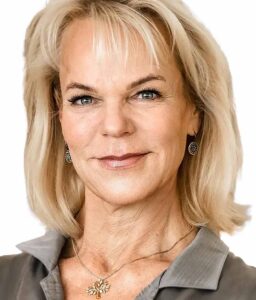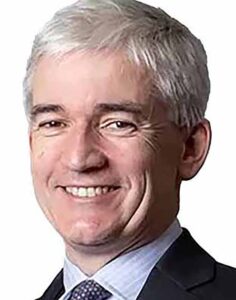- Dalata Hotel Group was acquired for €1.4 billion, subject to approval, by a consortium led by Pandox AB and Eiendomsspar AS, finalised on 15 July 2025.
- The acquisition includes Dalata’s 56 hotels primarily under the Maldron and Clayton brands, expanding into a Northern European hotel platform.
- A strategic review launched in March highlighted the need for access to better capital and addressed the company’s share price undervaluation.
- The consortium’s final bid of €6.45 per share represents a 12 per cent premium over its closing price on 2 June, following prior negotiations.
- Dalata aims for growth and retention of staff while pursuing its “2030 Vision” to expand to 21,000 rooms in key markets.

IN the end there were no jigs or reels, not even some kulning. Not even the shrill clink of a bell hop. In the end, it was swift, decisive and unexpected, like the best business deals in Irish hotel history. And this, by a margin, was the largest.
, Ireland’s largest hotel operator, Dalata Hotel Group, has been acquired by a Scandinavian consortium led by Pandox AB and Eiendomsspar AS for €1.4bn in a landmark deal finalised on 15 July 2025, marking a significant moment for the European hospitality sector. The agreement, which followed months of negotiations and a rejected initial bid, sees Dalata’s portfolio of 56 hotels, primarily under the Maldron and Clayton brands, integrated into a broader Northern European hotel platform, with operations to be managed by Scandic Hotels Group AB. The transaction, described as a “very good fit” by Dalata’s chief executive Dermot Crowley, concludes a strategic review launched in March to address persistent undervaluation of the company’s shares and unlock new growth opportunities.
The journey to this deal began in early March when Dalata, grappling with a share price that had risen only 6pc over the previous four years despite robust portfolio expansion, announced a strategic review led by investment bank Rothschild. The Dublin-based company, founded in 2007 by Pat McCann, former chief executive of Jurys Doyle Hotel Group, had grown into a leading four-star hotel operator with 12,000 rooms across Ireland, England, Scotland, Germany, and the Netherlands. However, challenges in accessing capital and a share price that failed to reflect its operational success prompted the board, chaired by John Hennessy, to explore options, including a potential sale. This move attracted interest from multiple parties, including American investment firms Starwood Capital, Davidson Kempner, Apollo, and Bain, alongside Saudi conglomerate Zahid Group and London-based hedge fund Helikon Investments, which together hold significant stakes in Dalata.
In early June, Pandox, a Swedish hotel developer owning 163 properties across 11 countries, and Eiendomsspar, a Norwegian real estate firm with a 36pc stake in Pandox and an 8.8pc stake in Dalata, made an unsolicited €1.3 billion offer at €6.05 per share. This bid, representing a 5pc premium over the closing price on 2 June, was swiftly rejected by Dalata’s board for “materially undervaluing” the company’s prospects. The consortium, advised by Goodbody Stockbrokers, had initially declined to participate in the formal sales process, but the rebuff prompted renewed engagement. On 24 June, Pandox and Eiendomsspar improved their offer, gaining access to a virtual data room for due diligence, which paved the way for the final €6.45 per share cash offer—a 12pc premium over the 2 June closing price and a 35.5pc premium over the pre-review share price on 5 March.

The acquisition, executed through a vehicle named Pandox Ireland Tuck Limited, sees Pandox holding a 91.5pc stake and Eiendomsspar 8.5pc. Scandic Hotels Group, in which Eiendomsspar holds a 14.7pc stake, will manage Dalata’s hotels, with an option to purchase the operating business for €500m by late 2026. Christian Ringnes, chairman of Eiendomsspar, hailed the deal as a union of “one of the finest hotel companies in Northern Europe” with Pandox’s extensive expertise, while Pandox’s chief executive Liia Nõu praised Dalata’s “well-established and highly profitable” portfolio for strengthening their footprint in key markets like Dublin and London.
Dermot Crowley, who will continue to lead Dalata from its Dublin headquarters, emphasised the deal’s potential to accelerate growth by providing better access to capital. He highlighted the retention of staff and management as a priority, ensuring continuity for the company’s 5,000 employees. John Hennessy, Dalata’s chairman, described the transaction as the “best available strategic option” after a rigorous sales process, delivering “compelling value” to shareholders. The deal, which exceeds Dalata’s highest market capitalisation since its 2014 listing, is expected to close in the fourth quarter of 2025, pending shareholder approval and regulatory clearance.
The acquisition reflects broader trends in the European hospitality market, where investors are seeking inflation-hedged assets amid resilient travel demand. Dalata’s 2024 financials, showing a 7.3pc revenue increase to €652.2m and a 5.1pc rise in adjusted core profit to €234.5m, underscored its appeal despite a 12.7pc drop in profit after tax due to refinancing costs. The company’s “2030 Vision” to expand to 21,000 rooms, including new hotels in Berlin and Madrid, will now be pursued under the Scandinavian consortium’s larger platform, positioning Dalata for its next chapter as a leading international hotel operator.

The Dawning of Dalata
The sale marks the culmination of an extraordinary journey for a company founded just 18 years ago. From its inception in 2007 by hospitality veteran Pat McCann to its emergence as a leading four-star hotel operator across Ireland, England, Scotland, Germany, and the Netherlands, Dalata’s story is one of ambition, strategic acquisitions, and resilience, driven by key figures whose vision transformed a fledgling enterprise into a European powerhouse.
The Dalata Hotel Group was born in the aftermath of the 2006 sale of Jurys Doyle Hotel Group, where Pat McCann, a 30-year veteran of the hospitality industry, served as chief executive. Sensing opportunity in Ireland’s burgeoning tourism sector, McCann founded Dalata in 2007 with a focus on building a portfolio of mid-market hotels under the Maldron and Clayton brands. Backed by early investors like Davy Stockbrokers and with McCann at the helm, the company acquired its first property, the Maldron Hotel Smithfield in Dublin, in 2008, laying the foundation for a network that prioritised value-driven, four-star accommodation. The timing was challenging, coinciding with the global financial crisis, but McCann’s experience and focus on operational efficiency enabled Dalata to weather the storm, acquiring distressed assets at attractive prices.
By 2011, Dalata had expanded to eight hotels, primarily in Ireland, through strategic purchases like the Maldron Hotel Cardiff and the Pillo Hotel Galway. The appointment of Dermot Crowley as deputy chief executive in 2012, who later became chief executive in 2020, brought financial acumen to the leadership team, complementing McCann’s operational expertise. Crowley, a chartered accountant with a background in hospitality finance, played a pivotal role in scaling the business. In 2013, Dalata made a transformative move by acquiring nine hotels from the Moran Bewley’s Hotel Group for €255m, doubling its portfolio and establishing a strong presence in Dublin and regional Ireland. This deal, funded through a combination of debt and equity, set the stage for Dalata’s initial public offering on the Irish Stock Exchange in March 2014, raising €265m at €3.50 per share and valuing the company at €435m.
The IPO, overseen by McCann and chairman John Hennessy, a former managing director at Credit Suisse, provided capital for further expansion. Between 2014 and 2018, Dalata acquired key properties, including the Clayton Hotel Chiswick in London for £52m in 2015 and the Maldron Hotel Kevin Street in Dublin in 2016, boosting its room count to over 7,000. The company’s focus on both owned and leased properties, coupled with a disciplined approach to branding, saw Maldron and Clayton hotels become synonymous with reliable, mid-market hospitality. In 2018, Dalata entered the UK regional market with the £90m acquisition of the Clayton Hotel Birmingham, followed by the £44m purchase of the Hilton Garden Inn Dublin Custom House in 2019, rebranded as a Clayton property.
International expansion accelerated under Crowley’s leadership after McCann stepped down as chief executive in 2020, transitioning to a non-executive director role. Dalata entered continental Europe with the 2021 acquisition of a Maldron hotel in Amsterdam for €60m, followed by properties in Germany, including the Clayton Hotel Düsseldorf in 2022. By 2025, Dalata operated 56 hotels with 12,000 rooms across four countries, employing 5,000 staff and generating €652.2m in revenue in 2024, a 7.3pc increase year-on-year. The company’s “2030 Vision,” launched in 2023, aimed to reach 21,000 rooms, with new developments planned in Berlin, Madrid, and Edinburgh.
Despite its operational success, Dalata faced challenges with its share price, which rose only 6pc from 2021 to 2025, prompting a strategic review in March 2025. Led by Hennessy and advised by Rothschild, the review explored options to address undervaluation, attracting interest from global investors like Starwood Capital, Apollo, and Saudi-based Zahid Group. In June 2025, Pandox and Eiendomsspar, the latter holding an 8.8pc stake in Dalata, made an initial €1.3 billion offer at €6.05 per share, which was rejected for undervaluing the company. After due diligence and negotiations, the Scandinavian consortium, leveraging Pandox’s 163-property portfolio and Eiendomsspar’s real estate expertise, secured the deal at €6.45 per share—a 12pc premium over the 2 June price and 35.5pc above the pre-review price.
The acquisition, executed through Pandox Ireland Tuck Limited, integrates Dalata into a Northern European platform managed by Scandic Hotels Group, with Crowley remaining as chief executive to oversee operations from Dublin. Christian Ringnes, chairman of Eiendomsspar, and Liia Nõu, Pandox’s chief executive, praised Dalata’s profitable portfolio and growth potential, while Hennessy described the sale as the “optimal outcome” for shareholders. As Dalata embarks on its next chapter, the legacy of McCann’s vision, Crowley’s financial stewardship, and Hennessy’s strategic oversight endures, cementing the company’s place in Europe’s hospitality landscape.



